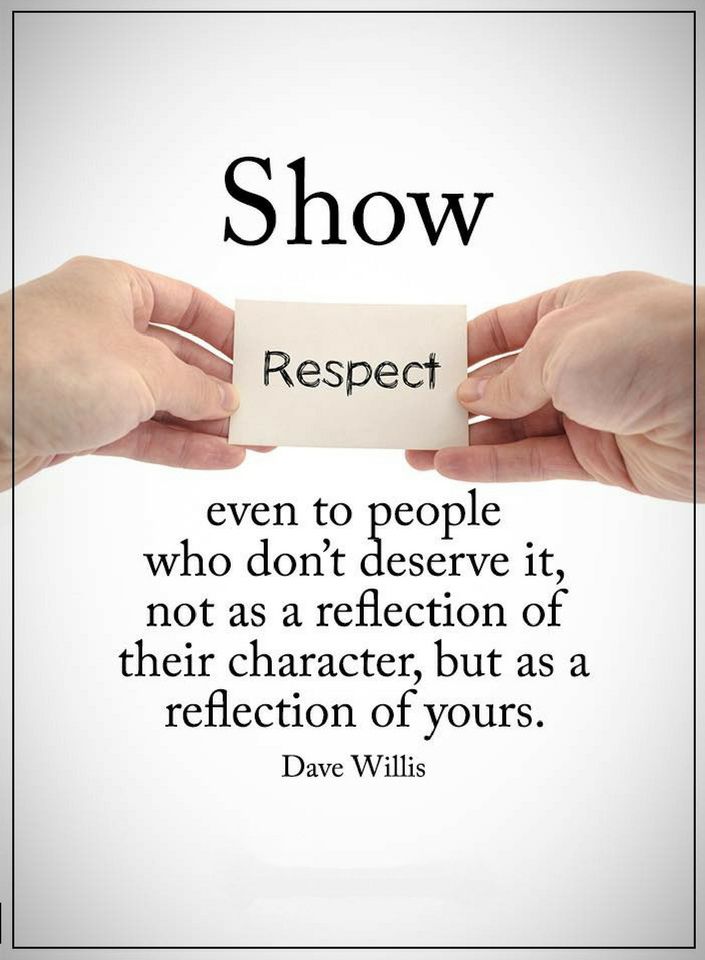Disrespecting Quotes: Understanding The Impact Of Words
Disrespecting quotes can have a profound impact on our interactions and relationships. In a world where communication is key, the way we express ourselves matters more than ever. Quotes that disrespect others can lead to misunderstandings, conflicts, and even a breakdown of relationships. In this article, we will delve into the meaning of disrespecting quotes, explore their consequences, and provide insights on how to communicate effectively while respecting others.
Throughout this exploration, we will examine various perspectives on disrespect, the role of quotes in shaping our thoughts, and how to foster a culture of respect in our conversations. By understanding the nuances of language and the power of words, we can learn to communicate in a way that uplifts and empowers rather than diminishes and disrespects.
Join us as we navigate through this important topic, uncovering the layers of meaning behind disrespecting quotes and how they can affect our lives and the lives of those around us. Let’s take a closer look at the dynamics of communication and the importance of choosing our words wisely.
Table of Contents
- 1. Definition of Disrespecting Quotes
- 2. The Impact of Disrespecting Quotes
- 3. Examples of Disrespecting Quotes
- 4. Understanding the Context
- 5. Effective Communication Strategies
- 6. Cultural Perspectives on Respect
- 7. Promoting Respectful Dialogue
- 8. Conclusion and Call to Action
1. Definition of Disrespecting Quotes
Disrespecting quotes refer to phrases or statements that belittle, insult, or undermine others. These quotes can manifest in various forms, such as sarcasm, derogatory remarks, or dismissive comments. Understanding what constitutes a disrespecting quote is essential for fostering respectful communication.
Some common characteristics of disrespecting quotes include:
- Insults or name-calling
- Mocking someone's beliefs or values
- Minimizing others' experiences or feelings
- Using sarcasm that can be perceived as hurtful
2. The Impact of Disrespecting Quotes
The impact of disrespecting quotes extends beyond mere words. They can affect relationships, workplace dynamics, and even mental health. When individuals feel disrespected, it can lead to:
- Decreased trust and communication
- Increased conflict and hostility
- Lowered self-esteem and confidence
- Emotional distress and anxiety
Understanding these impacts emphasizes the importance of respectful communication in our daily lives.
3. Examples of Disrespecting Quotes
To better illustrate the concept of disrespecting quotes, here are some examples:
- "You always mess things up; can’t you do anything right?"
- "I can’t believe you thought that would work; how naïve!"
- "You're just being overly sensitive; get over it!"
These examples demonstrate how language can be used to belittle or dismiss others, highlighting the need for more thoughtful communication.
4. Understanding the Context
The context in which a quote is delivered plays a crucial role in how it is perceived. A statement that may seem harmless in one context can be deeply disrespectful in another. Factors influencing the context include:
- The relationship between the speaker and the listener
- The tone of voice and body language used
- The cultural background of the individuals involved
Recognizing these factors can help individuals choose their words more carefully.
5. Effective Communication Strategies
To promote respectful dialogue, consider implementing the following communication strategies:
- Practice active listening to understand others' perspectives.
- Choose words that uplift rather than diminish.
- Avoid making assumptions about others' feelings or experiences.
- Be mindful of the tone and delivery of your messages.
These strategies can help cultivate an environment of respect and understanding.
6. Cultural Perspectives on Respect
Cultural differences can significantly influence perceptions of respect and disrespect. What may be considered disrespectful in one culture may be acceptable in another. Understanding these cultural nuances is vital for effective communication, especially in diverse settings. Some cultures value directness, while others prioritize harmony and indirect communication. Being aware of these differences can help prevent misunderstandings and foster respectful interactions.
7. Promoting Respectful Dialogue
Promoting respectful dialogue requires intentional effort from everyone involved. Here are some ways to encourage respectful conversations:
- Model respectful behavior in your own communication.
- Encourage open discussions about boundaries and expectations.
- Address disrespectful comments promptly and constructively.
- Provide feedback in a way that focuses on behavior rather than character.
By actively promoting respectful dialogue, we can create a more inclusive and understanding environment.
8. Conclusion and Call to Action
In conclusion, disrespecting quotes can have far-reaching effects on our relationships and mental well-being. By understanding the implications of our words and striving for respectful communication, we can foster healthier interactions. As you reflect on this article, consider how you can contribute to a culture of respect in your own life.
We invite you to share your thoughts in the comments below. How do you approach conversations that may lead to disrespect? Share this article with friends and family to spread awareness about the importance of respectful communication.
Thank you for reading! We hope you found this article informative and engaging. Be sure to return for more insights on effective communication and personal growth.
Understanding Cr1tikal Height: The Rise Of A Gaming Icon
Frankie Jay: The Journey Of A Rising Star In The Music Industry
Understanding JCook's Girlfriend: The Relationship Behind The Artist


